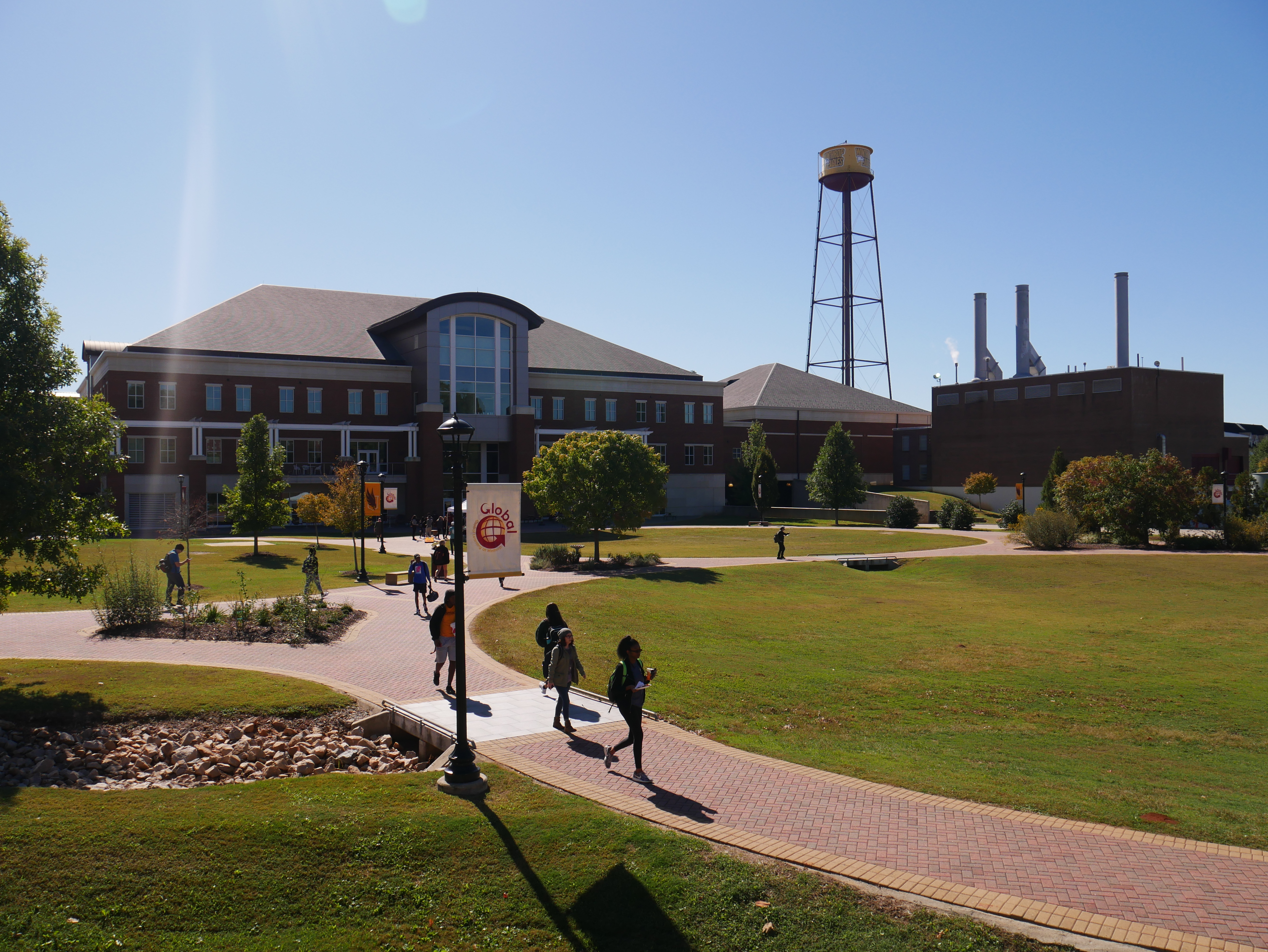As South Carolina faces a daunting shortage of teachers, Winthrop University is making use of a $3.8 million grant to aid in filling that void.
Winthrop’s Richard W. Riley College of Education was recently awarded the grant which is meant to help with retaining teachers in three of South Carolina’s rural school districts. In the press release about the grant, Dean of the College of Education Jennie Rakestraw said that South Carolina had lost 5,300 teachers in 2018.
In an interview with The Johnsonian, Rakestraw elaborated on the lack of teachers in the state. She said that there are “a lot of different factors” that go in to the shortage of teachers in South Carolina. She said that a group of education deans from across the state that she is involved with have been taking a look at this problem for some time now.
Rakestraw first cited the mass retirement of baby boomers — some of whom she said have taught for 30-40 years. She said that the teachers from that generation “may have hung on a while” but they are reaching the end of their careers. She also cited a changing world and the changing role of teachers in public schools.
“You’ve got some teachers who are really frustrated with their jobs, more frustrated than before. Teaching has always been challenging. You’re working with so many different kinds of students and societal issues, schools are almost like a microcosm of society as a whole. So those issues come in to the schools,” Rakestraw said. “There’s more need in school districts and schools to have mental health counselors, to have nursing care, social workers, and teachers, a lot of times, feel like they have to do some of all of that.”
Rakestraw said that if teachers “don’t have strong support from the school’s leadership” then that can lead to them feeling “alone with all of the issues that they deal with on a day-to-day basis.”
“There are so many very dedicated teachers who have learned how to manage a class and to seek help and to negotiate these things, and are doing great. But it’s pretty much challenging for everybody but there are some people who just say, ‘I’m just not sure I want to keep doing this forever,’” Rakestraw said.
As part of the rapidly-changing world of today, Rakestraw said that she thinks it is uncommon for people of the younger generations to maintain the same career for an extended period of time.
“There’s also, I think, a younger generation who feel like, ‘You know, I’ll do this for a while and then I’ll go do this for a while.’ So now, younger generations don’t even think about ‘Okay, I’m going to do this job for the next 30 years.’ They think, ‘Okay, this is what I’m going to do now, but I may switch and do something very different later.’ [So] they don’t feel held to a long term career in one field necessarily,” Rakestraw said.
According to the press release about the grant, “The Network for Sustained Educational Residencies that Value Equity grant will establish a teacher residency program over five years to prepare individuals who hold a bachelor’s degree to become teachers through a graduate Master of Arts in Teaching program.”
Winthrop President Dan Mahony said in the press release that “NetSERVE’s residency programs represent a key way in which Winthrop is working closely with community partners to meet the growing demand for highly effective teachers in South Carolina.”
While speaking with The Johnsonian, Rakestraw elaborated on what NetSERVE is and what purpose it serves.
“We have an MAT program, a master of arts in teaching, so if someone has, say, a degree in biology and then they want to be a high school science teacher, they can go into this program and get their teacher certification. They know the content, they just need to sort of know how to teach,” Rakestraw said. “We have two tracks for that: if a Winthrop student [has a degree in] in biology but they take an educational studies minor, then they’ll have some education coursework [as a foundation] and they can complete the master’s degree in one year. If they don’t have any background at all, then we have a traditional MAT track. We’ve just tried to provide a shorter track if they have this minor that allows them to meet the MAT requirements.”
Rakestraw said that in building off of that program, the grant is focusing on science and math “at all levels.” She said that with the first cohort, they are working to find students who are pursuing degrees in math or science (as well as related fields) and are interested in teaching.
As for where the $3.8 million are going, Rakestraw said grant proposals that are submitted to the federal Department of Education require a “very detailed budget.” She said that the money for this particular grant goes directly to starting the residency program. As for some of the most important areas where the money will be used, Rakestraw said that the budget includes funds to hire a project director as well as staff who will work with “mentoring and induction” of MAT students in the residency. Additionally, each of the residents who go into the program will receive a $20,000 stipend for that year, Rakestraw said.
“They’re not really going to be able to hold another job, and that’s just to help them [to] pay bills that they may have during that year that they’re really going to be working in that school but not getting any other paycheck during that time,” Rakestraw said.
The money will also cover expenses for travelling back and forth to school districts, meetings, professional development and having specialists from around South Carolina come in and work with residents.
“[The $3.8 million] goes directly into what happens to make what we proposed happen,” Rakestraw said.
Photo: Mason Foster/ The Johnsonian




